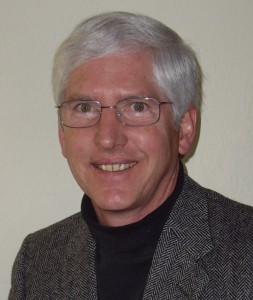Four Bookmarks: Capturing Foundational Truths for Churches Today
When I am visiting churches, I often pass out four bookmarks that contain what I believe are foundational truths for the church in our time. Today, I want to reflect further on what those bookmarks have to say.
|
“For the first time, our power to destroy outstrips earth’s power to restore.” |
We really are in an unprecedented situation. For most of humanity’s time on this planet, we have been subject to natural forces that we could not understand or control. If we were able to impact our environment, it was on a fairly local level. But that is not true anymore.
The advent of nuclear weapons at the end of WWII was a qualitative jump into the realm of global destruction. The power of huge arsenals of atomic warheads unleashed the possibility of widespread radiation and nuclear winter. No longer could we pretend to be innocent. But that is just one place where we have created and claimed astonishing new power.
We now know that our profligate use of fossil fuels is warping Earth’s climate, and changing the chemistry of the oceans. These changes are underway, and cannot be reversed within centuries — we can only slow the impacts. New technologies have allowed fleets to deplete ocean fisheries to the point of collapse. Human-made chemicals which do not break down, and which have toxic effects, are spread all around the planet.
We are living with a reality that none of our ancestors ever experienced, or could ever have imagined. Recognizing our power to destroy is an essential first step in shaping new ethics, technologies and policies.
|
“Shalom: the biblical word for all of creation existing in peace, justice and harmony.” |
Caring for creation is a commitment woven deeply into the Judeo-Christian tradition. Whether expressed as shalom in Hebrew, or as the Realm of God in Christian writings, our faith has always recognized “the integrity of creation” and the value inherent in all things. We have always known that justice and righteousness require right relations among all parts of a community, reaching out to include the entire Earth community.
Environmental protection is not just a nice amenity, something to think about once we’ve accomplished other goals. The well-being of all creation is God’s primary intention for the world. It is a moral imperative of the highest order.
Our ability to destroy God’s creation stands is stark opposition to the faithful hope and promise of shalom.
|
“The hottest places in hell are reserved for those who, in times of great moral crisis, maintain their neutrality.” |
Dante wrote over 800 years ago, so he also gives voice to a timeless perspective for our current “great moral crisis.” Silence and neutrality are the same as complicity with forces of destruction.
The new US administration is waging an active, intentional assault on God’s creation, on the Earth community. Their rejection of scientific evidence, and their support of Earth-ravaging industries brings to a head tensions that had been simmering in US politics.
There is no middle ground, especially when the stakes are this high. Each of us must choose which side we will support, where we will place our loyalty, which god we will serve.
|
“It is no longer acceptable to claim to be ‘church’ while continuing to perpetuate, or even permit, the abuse of Earth as God’s creation.” |
A dozen years ago, a group of leading environmental theologians released the short document, God’s Earth is Sacred, a clear and compelling statement of moral principles. They spoke not only to individuals, but to the Christian church as a whole.
They asserted that care for the Earth “is not a competing ‘program alternative,’ one ‘issue’ among many. In this most critical moment in Earth’s history, we are convinced that the central moral imperative of our time is the care for Earth as God’s creation.” As the quote on our bookmark says, a commitment to God’s creation is now a litmus test for the church’s faithfulness.
Peter Sawtell is the Executive Director of Eco-Justice Ministries in Denver, Colorado. An extended version of this commentary originally appeared in Eco-Justice Notes. It is reprinted here with Sawtell’s permission.
Related News
Joy, Love, and Climate Action: A Church Draws from Ayana Elizabeth Johnson
At First Congregational Church, UCC, in Colorado Springs, CO, our Climate Justice Leadership...
Read MoreAn ally experiences PRIDE in the CLE
Advocacy and Action for Women's and Gender Justice Local events stir thoughts and...
Read MoreVote for Climate Hope Congregation Toolkit
After having witnessed the wonderful Climate Hope art of UCC children and youth, we are now...
Read More

